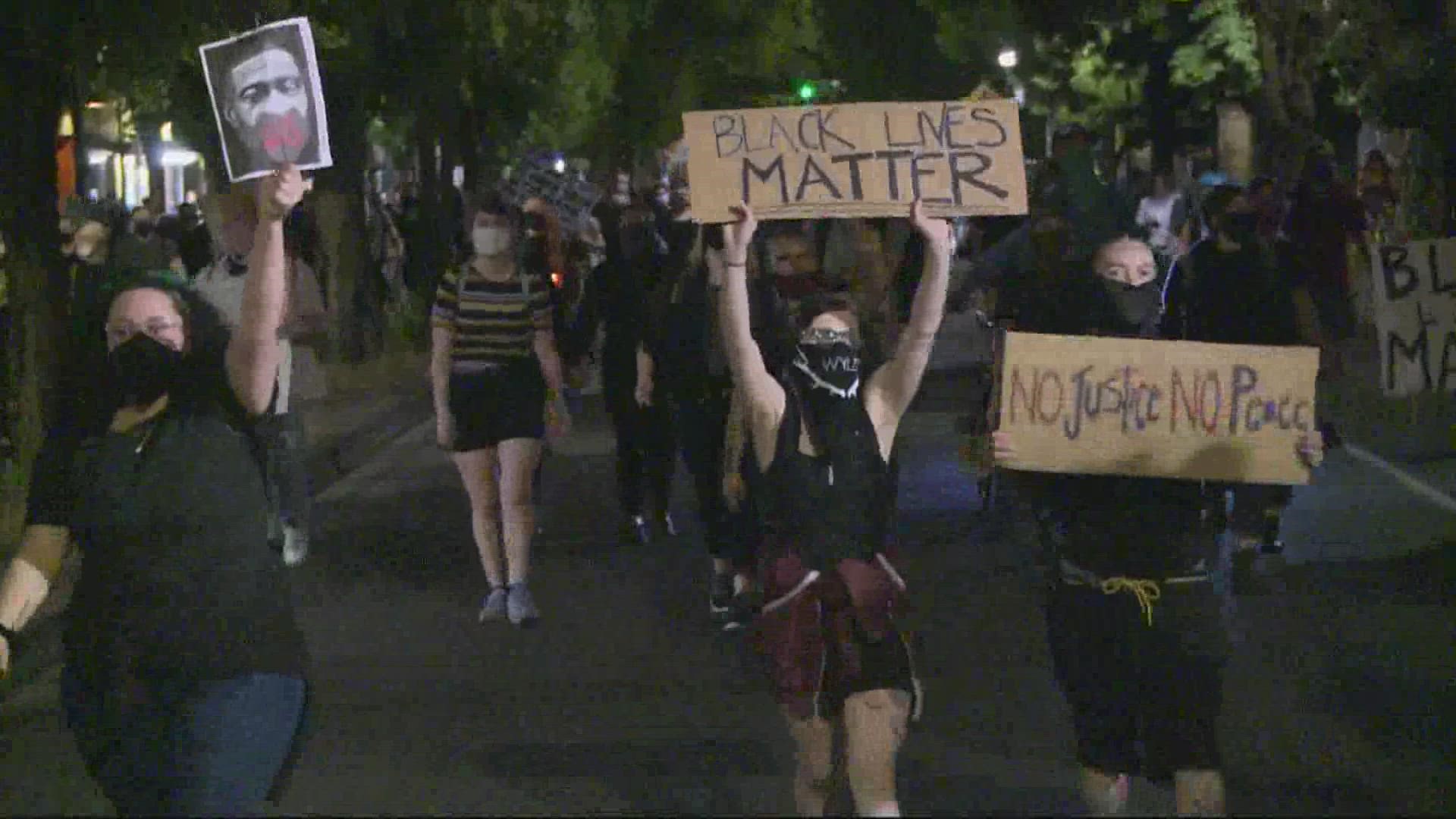PORTLAND, Ore. — A new Portland city audit criticizes the way the Portland Police Bureau collected and stored surveillance information around the racial justice protests in 2020.
Auditors said police collected information about protesters who were not connected to any crimes, and kept some private information for too long.
The audit was launched after Black Lives Matter protesters expressed concern that PPB was gathering information that could violate their civil rights.
The report concluded that some of those concerns were unfounded — like the rumor that police were spying on people from planes or other aircraft — but other fears were indeed warranted.
"The concerns that were brought to our attention and prompted us to do this audit were valid," said Mary Hull Caballero, auditor for the City of Portland.
Portland auditors reviewed 73 police and Criminal Intelligence Unit reports related to racial justice protests in the summer of 2020 — a sample of more than 1,500 reports in total.
They found photos and videos of protesters that didn’t include documentation of criminal activity, which Hull Caballero said could stifle free speech.
"The boundaries need to be set by management of the bureau, and they need to help officers understand where the boundaries are," she said.
Chris Bushick, director of PDX Privacy — an organization that was surveyed by auditors as part of the report — said the lack of guidelines is why people are calling for a surveillance ordinance within the city.
"You shouldn’t have your name, photo and license plate number in a secret database just because you stood on a corner holding a sign," Bushick said. "There need to be protections in place."
The auditor’s office recommended new policies and guidance on which private information can be collected by PPB, how long that information should be kept in police files, and how the bureau should report its use of surveillance technology.
For the most part, police leaders voiced agreement.
In response to the audit, Chief Chuck Lovell said new directives on intelligence-gathering are under review and all bureau members will be trained on the changes.
Plus, Lovell pledged that PPB will publish details on how it is using surveillance tech in its annual report.
Mayor Ted Wheeler said he’ll work to enact all five of the audit recommendations to support privacy protections of citizens.
However, in terms of the information collected during the 2020 protests, there could still be information in the police records that shouldn’t be there, Hull Caballero acknowledged.
"There could be, I don’t know if they purged that out of the system or not," she said.
With unwarranted information shared across police databases, auditors said that could create risks.
"[Someone] could be pulled over and the officer pulls up their records in the system and sees they participated in the Black Lives Matter protests, and if they were doing nothing wrong that information does not need to be considered by an officer during a traffic stop," Hull Caballero said. "It also does a real disservice to the officers because they are unnecessarily feeling at risk, or a heightened level of risk."
Among the information collected without documenting criminal activity, auditors said police officers took photos and videos of protesters and organizers, recorded license plate information, and saved images from social media posts.
The report said the Bureau had "no instructions for officers specific to investigating criminal activity during protests," meaning officers used their own discretion to decided "how and what type of information to collect."
More information from the audit, including responses from Mayor Wheeler and Chief Lovell, can be found in the report below.

